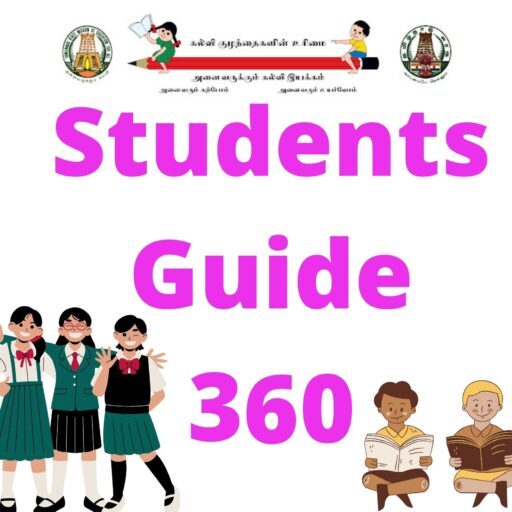9th English Unit 6 January Poem The Comet Book Back Answers
9th Standard English Lesson 6 The Comet Solution
9th Standard English Lesson 6 Poem Unit 6 January Poem The Comet Book Back Answers and Additional Questions and Answers Download pdf. 9th English Samacheer Kalvi Guide Book in Answers. 9th Standard All Subject Guide Tamil Medium and English Medium. 9th English Important Questions. Class 1 to 12th All Subject Guide.

The Comet
Glossary
- rampaging (v) – going through an area making a lot of noise and causing damage
- spectacle (n) – an unusual or unexpected event or situation that attracts attention, interest
- comet (n) – an icy small Solar body, which when passing close to the Sun, warms and begins to release gases that are seen on rare occasions from the earth as a bright line in the sky
- trail (n) – a path often made or used for a particular purpose
- quake (v) – a sudden violent movement of the earth’s surface, some times causing great damage (short form of earthquake).
A. Read the following lines and answer the questions.
1. Rampaging through the heavens
Never stopping day or night,
a) How does the comet travel?
The comet travels without stopping day or night.
b) Which word could you replace ‘rampaging’ with?
- charging
- rolling
- speeding
- flying
Ans : speeding
2. Faster than a cheetah
With a tail that’s miles long,
a) Why is the comet compared to a cheetah?
Cheetah is the fastest animal. So the comet is compared to it.
b) Whose tail is compared here?
Comet’s tail is compared here.
3. With shockwave reaching to the ground
Causing the land to quake
a) What is reaching to the ground?
Shock wave is reaching to the ground
b) What is causing the land to quake?
Shock wave is causing the land to quake.
4. In the dust they leave behind,
Could have started life on the earth
Which resulted in mankind
- a) What does the word ‘they’ refer to?
The word ‘they’ refers to the comets.
- b) According to scientists, how did life start on earth?
According to scientists, life on earth could have started from the chemicals in the dust which the comets leave behind.
5. But I know no better spectacle
Than a comet in full flight.
a) Who does ‘I’ refer to?
- ‘I’ refers to the poet (Norman Littleford)
b) What is the best spectacle mentioned in the above lines?
- The best spectacle mentioned in the above lines is a comet in full flight.
B. Complete the summary by filling in the given spaces with suitable words/phrases given below
| a trail | best spectacular | spectacular scene | outer ice | a cheetah |
| day or night | emerging of life | powerful and strong | shock wave | scientists |
The poet describes a moving comet which speeds through the heavens and never takes a break by day or night. When a comet is in full flight, it gives a spectacular scene which can never be compared to anything else for a lifetime. The comet is compared to a cheetah for its speed and a mountain as it is powerful and strong. The outer ice melts which causes a vapour from the force and leaves behind a trail as it travels on its way. If it comes very close to the atmosphere, it causes a shake which in turn produces a shock wave that reach the Earth’s surface. According to the scientists the comets leave behind chemicals in the form of dust which resulted in the emerging of life on earth and mankind came into existence. But the poet is not sure whether this principle is true or not but he knows for sure that whatever the truth may be, the sight of the comet in full flight is the best spectacular.
C. Poem appreciation:
If one should come too close to earth
The atmosphere will shake,
With shock wave reaching to the ground
Causing the land to quake.
1. Pick out the rhyming words.
shake, quake
2. Mention the rhyme scheme of the stanza.
a b c b
3. When you read the poem aloud, you can feel/hear a rhythm. What according to you gives rhythm to the poem-the rhymes or the words in a line. Support your answer with examples from the poem.
The words give rhythm to the poem.
Ex:
- shake – quake
- shake – shock
- ground – land
LISTENING
Listen to the passage on ‘Comet’ and fi ll in the blanks by choosing the correct answer.
1. Comets are believed to be remnants of the materials created by the _____.
- Moon
- Sun
- star
- asteroids
Ans : Sun
2. Comets are mostly made of _______.
- dust
- ice
- sand
- snow
Ans : ice
3. The _______ can be seen in the night sky as a bright, quickly-moving light.
- head
- star
- tail
- wings
Ans : tail
4. Comets orbit at the very edge of the galaxy, past the _______.
- Earth
- Neptune
- Pluto
- Saturn
Ans : Pluto
5. State whether the statement is true or false
The melting process causes bits of dust and debris to trail behind the comet.
Ans : True





